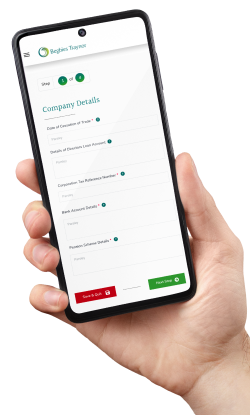If your company has been served with a statutory demand, it means you have 21 days to pay the amount due. If you don’t pay, the creditor can issue a winding up petition against your business.
Receiving a statutory demand is a serious issue, made more urgent by the fact that the moratorium on statutory demands and winding up petitions ended on 30th September 2021. The moratorium protected businesses in financial difficulty due to coronavirus.
This means you have no protection even if your business is still struggling as a result of the pandemic. So what exactly is a statutory demand, and how does it affect your company?
A statutory demand is a written demand for payment of an outstanding sum of money to a creditor. It’s a highly effective way for creditors to recoup outstanding debt, and demonstrates their determination to do so.
A creditor can issue a statutory demand if a company owes them £750 or more, and they have unsuccessfully pursued repayment of the debt using the usual channels. HMRC are known to use these demands to recover tax arrears.
The demand allows you 21 days to pay, but you only have 18 days to challenge it. This is why it’s imperative to act quickly, and seek professional insolvency help if you suspect a creditor might take this type of action.
Concerned about the National Insurance increase?
For the 2024-25 tax year, the rate of employer National Insurance increases from 13.8% to 15% adding yet more pressure onto already squeezed cash flows. If you are worried about the impact this could have on your company’s finances, talk to the experts at UK Liquidators. As licensed insolvency practitioners we can explain your options and help you plot a way forward. Call today on 0800 063 9262.
Speed is of the essence as time to act is very limited in this situation. You should pay the outstanding sum if your company can afford it, or negotiate payment in instalments. If you genuinely dispute the sum being demanded, however, you can challenge it in court.
It’s important to make sure your challenge is legitimate, as you could be held in contempt of court if it’s viewed as a delaying tactic. We can help you prepare a legitimate challenge if the debt has already been paid or is in dispute.
Liquidation Portal
For Company Directors

You should inspect the document very carefully to ensure the details are correct, and that it has been served in the prescribed manner. Assuming the debt is legitimate, you then need to decide whether you can afford to pay in full or negotiate with the creditor to pay in instalments.
If you do nothing, it confirms in law the existence of the debt and your creditor is able to petition to wind up your company. Once a winding up petition is issued, you only have seven days to prevent a winding up order being granted by the court.
Start your online liquidation today
If you have decided liquidation is the right option for your limited company, you can take the first step and begin the process online using our online portal. Starting the process is quick, simple, and can be done at a time that suits you. Your information will be submitted to your local UK Liquidators insolvency practitioner who will be with you every step of the way. Click here to start your company’s liquidation online.
A formal insolvency procedure, such as company administration, could protect your business from any existing or planned legal action. A further potential option is a Company Voluntary Arrangement (CVA). This provides more time to repay some of the overall debt at a rate affordable for the business.
If liquidation is the only option, however, you should enter liquidation voluntarily rather than allow a winding up order to be granted. This is an important consideration as minimising creditor losses is a legal duty for directors of insolvent companies.
The end of the moratorium on statutory demands and winding up petitions leaves companies vulnerable to enforced closure. If your company has been issued with a statutory demand, please call our partner-led team at UK Liquidators. We can provide the reliable advice you need – we offer free, same-day consultations, and operate a broad network of offices around the UK.
By completing the test, you will receive:
If you are considering liquidation for your company, taking expert advice at an early stage is crucial. At UK Liquidators, our team of licensed insolvency practitioners are committed to providing limited company directors with the help and advice they need to make an informed decision.




Looking for immediate support?
Complete the below to get in touch